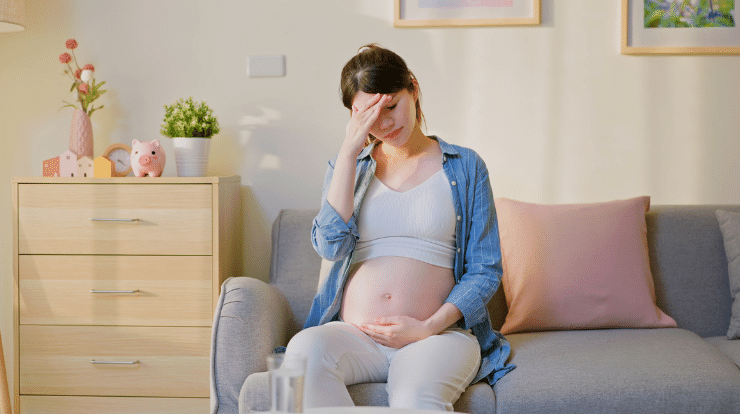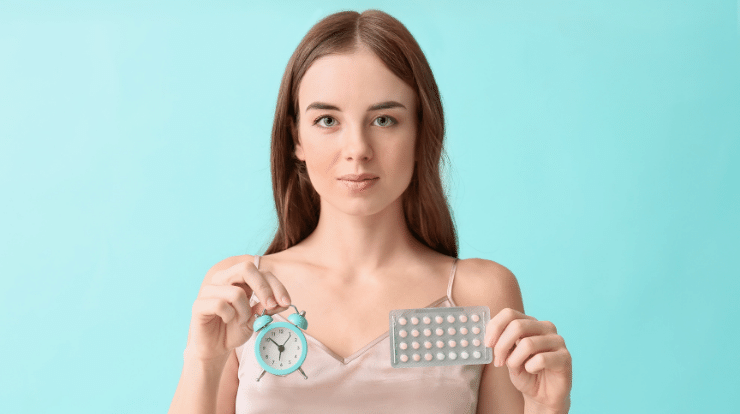
What is Vaginal itching during pregnancy?
Vaginal itching during pregnancy can be caused by a number of things, including hormones, friction from clothing, and changes in the vaginal environment. Itching is also a common symptom of yeast infections, which are more common during pregnancy. Treatment for vaginal itching during pregnancy will depend on the underlying cause. In most cases, simple self-care measures can help relieve symptoms. However, if the itchiness is severe or persistent, it may be necessary to see a doctor for treatment.
Causes of vaginal itching during pregnancy:
Following are the 8 causes of vaginal itching during pregnancy:
1. Hormonal changes: During pregnancy, the levels of estrogen in your body increase. This can sometimes cause the vaginal area to become more sensitive and susceptible to itching and irritation.
2. Increased blood flow: The increased blood flow to the pelvic region during pregnancy can also cause the vaginal area to become more sensitive and susceptible to itching and irritation.
3. Sweating: The increased sweating that often occurs during pregnancy can also contribute to vaginal itching.
4. Tight clothing: Wearing tight-fitting clothes, especially pants or skirts, can irritate the skin around the vaginal area and lead to itching.
5. Douching: Douching can upset the natural balance of bacteria in the vagina and lead to itching.
6. Yeast infection: A yeast infection is a common cause of vaginal itching during pregnancy. The increased levels of estrogen during pregnancy can cause the yeast to grow more rapidly, leading to an infection.
7. Bacterial vaginosis: This is a condition that occurs when there is an overgrowth of bacteria in the vagina. It can cause itching, burning, and a foul-smelling discharge.
8. Sexually transmitted infection (STI): If you have a sexually transmitted infection (STI), it can cause vaginal itching. Trichomoniasis is a common STI that can cause vaginal itching and irritation.
8 Home remedies for itchy vigina while pregnant:
If you’re experiencing vaginal itching during pregnancy, try these 8 home remedies:
- Apply a cold compress.
- Soak in a cool bath.
- Use an unscented, mild laundry detergent.
- Avoid tight-fitting clothing.
- Wear cotton underwear.
- Change out of wet clothing right away.
- Use a vaginal moisturizer or lubricant.
- Talk to your doctor about prescription medications.
If home remedies don’t work, or if your itching is severe, make an appointment with your doctor. They can prescribe medication to help relieve your symptoms.
How to clean private part during pregnancy?
- Pour lukewarm water into a clean basin.
- Add mild, unscented soap to the water and mix well.
- Sit on the edge of the tub or basin with your legs apart.
- Use a washcloth or your hands to wash your vulva and anus area with soapy water.
- Rinse well with clean water.
- Pat your vulva and anus area dry with a clean towel.
- If you have any doubts, ask your healthcare provider for guidance on how to clean your vulva and anus during pregnancy.

Vaginal dryness during pregnancy
Vaginal dryness is a common problem during pregnancy. It can be caused by the increase in hormones, which can affect the body’s natural lubrication. Other factors that can contribute to vaginal dryness include:
- Stress
- fatigue
- anxiety
- depression
There are several things you can do to help alleviate the symptoms of vaginal dryness. These include:
- Use a water-based lubricant during sex. This will help reduce friction and discomfort.
- Avoid using products that contain harsh chemicals or fragrances, as these can further irritate the area.
- Stay well hydrated by drinking plenty of water throughout the day.
Yeast infection during pregnancy:
Yeast infections are common during pregnancy. In fact, about 75% of women will experience at least one yeast infection at some point during their pregnancy. While these infections may cause some discomfort, they are usually not serious.
What are the symptoms of yeast infection during pregnancy?
The most common symptoms of yeast infection during pregnancy are itching, burning, and discharge. You may also have redness and swelling in the vulva. If you have any of these symptoms, it’s important to see your healthcare provider so that they can diagnose the cause and provide treatment.
What causes yeast infections during pregnancy?
Yeast infections during pregnancy are caused by an overgrowth of the yeast candida Albicans. This yeast is normally present in small numbers in the vagina, but when it grows too rapidly it can cause symptoms such as itching, burning, and discharge. Yeast infections are more common in pregnant women because of the changes in hormone levels that occur during pregnancy. The good news is that yeast infections can be treated with over-the-counter medications or home remedies. However, it’s important to see your healthcare provider if you think you have a yeast infection so that you can be sure it’s not a more serious condition.
How to treat yeast infection during pregnancy?
Yeast infections can be treated with over-the-counter medications or home remedies. However, it’s important to see your healthcare provider if you think you have a yeast infection so that you can be sure it’s not a more serious condition. Treatment for yeast infection during pregnancy may include:
Antifungal creams or suppositories: These are available without a prescription and can be used to treat mild yeast infections.
Oral antifungal medication: This is only recommended for severe yeast infections that don’t respond to other treatments.
Home remedies: Some women find relief from yeast infection symptoms using home remedies such as yogurt, coconut oil, or garlic.
Untreated yeast infection during pregnancy:
If you’re pregnant and have an untreated yeast infection, there’s a small risk that the infection could be passed to your baby during delivery. This could cause your baby to develop a serious condition called thrush, which can be difficult to treat. If you’re pregnant and think you might have a yeast infection, it’s important to see your doctor for proper diagnosis and treatment.
There are several ways to treat a yeast infection during pregnancy. Your doctor may recommend an over-the-counter or prescription antifungal medication. In some cases, they may also recommend using vaginal creams or suppositories. It’s important to follow your doctor’s instructions when treating a yeast infection during pregnancy.
When should I see a healthcare provider?
If you think you have a yeast infection, it’s important to see your healthcare provider so that they can diagnose the cause and provide treatment. Yeast infections are common and can be treated easily, but they can also be a sign of a more serious condition such as bacterial vaginosis or sexually transmitted infection. Therefore, it’s important to get an accurate diagnosis so that you can get the appropriate






